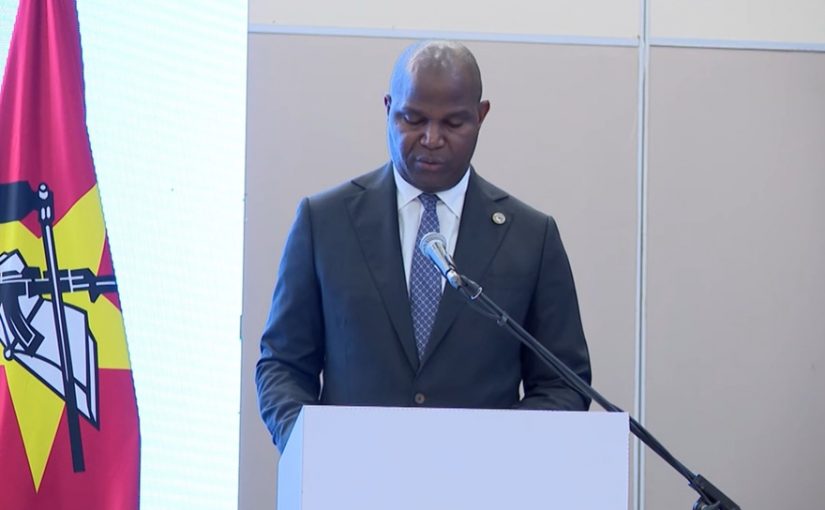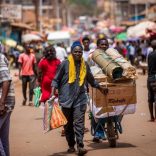UK Joins AGIA Fund to boost green infrastructure and inclusive growth in Mozambique and across ...
Mozambique must adapt to new climate reality – Watch

Screen grab: TVM
Mozambique is one of the ten countries most vulnerable to extreme climatic impacts, declared Mozambican President Daniel Chapo on Monday.
“This reality requires coordinated, intelligent and solidarity action, not only at political level, but also among specialists of our community, through the sharing of experiences, solutions implemented and innovations studied”, he added.
Chapo was speaking in Maputo at a symposium on water resources, held simultaneously with the 11th Congress on Planning and Managing Coastal Zones of the Portuguese Speaking Countries.
Given Mozambique’s extreme vulnerability to climate change, in its investment plans the Mozambican government envisages “adaptation to this new global reality”.
These investments, Chapo said, are being made in flood defence infrastructures, early warning systems, territorial organisation and other initiatives “which contribute to a significant reduction in loss of life and property”.
The cyclical and intensive nature of the disasters that have struck Mozambique “imposes on us the need to adopt various disaster management strategies”, said Chapo, including strengthening the role of the national relief agency, the National Disaster Management Institute (INGD), and creating a new unit dedicated to flood and drought control.
Chapo promised that Mozambique will continue to strengthen cooperation and exchange of information with the countries with whom it shares river basins.
“We recognise that the path is long, but the results of our interventions to mitigate the effects of climate change are already visible”, said Chapo. “For example, we have increased the time given by early warnings, which was just one day in 2016, but now the information is given six days in advance, which has made it possible to reduce significantly the associated impacts”.
Chapo stressed that the government is committed to the United Nations’ Sustainable Development Goals (SDGs), particularly SDG6, which is “providing universal access to drinking water and adequate sanitation”.
The National Development Strategy (ENDE) for 2025-2044, he added, “projects Mozambique into a new era of resilient and inclusive development”. The targets under ENDE include raising water storage capacity from 59.1 to 61.7 million cubic metres, and increasing the proportion of the population with access to clean drinking water to 70 per cent.












Leave a Reply
Be the First to Comment!
You must be logged in to post a comment.
You must be logged in to post a comment.